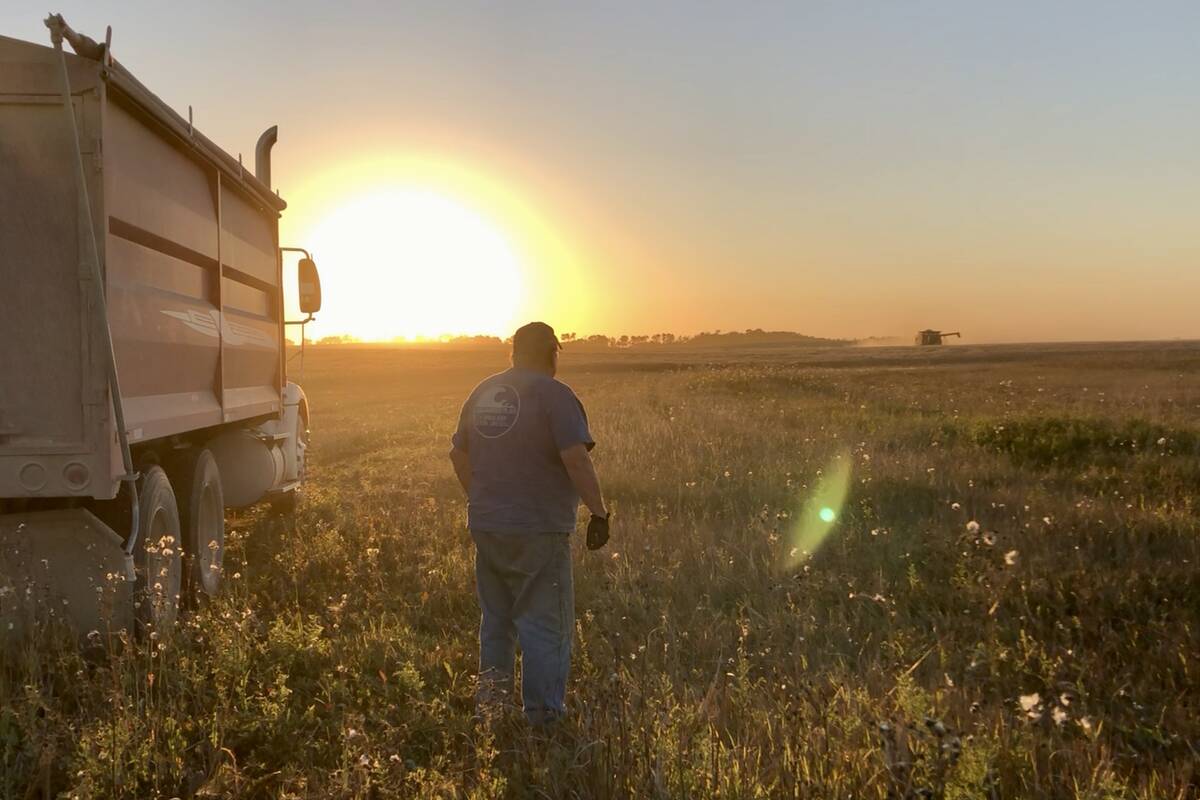MOOSE JAW, Sask. – It’s become a sign of how tough a farmer you are to brag about how little rain you got this summer, says one business planner.
John Spencer, who works for the federal government’s Farm Consultation Service, is joking. But underneath the smile is a serious point – only the strong survive.
“The people left in agriculture over the past 15 years are those in it for more than the money,” Spencer told a Nov. 29 farm women’s information day organized by Saskatchewan Agriculture.
Read Also

VIDEO: Bittersweet harvest for this family farmhand
Bruce Burnett helps his brother harvest wheat and canola for the last time on the family farm in Manitoba where they both grew up.
He tells his audience that the surviving farmers are not greedy. They appreciate the lifestyle and are guided by values.
“They are bloody tough,” Spencer said, standing and leaning his hands on a chair back.
“They challenge me as a consultant.”
He paced the room, chopping his hand to emphasize points. He confessed he stole another consultant’s idea when he said a definition of insanity is to do the same thing over and over while expecting different results. That’s why a bunker mentality will not help farm families these days, he added. They need to talk openly about their values, make a plan and then carry it out.
Spencer works with farmers who contact the federal program to get help with their businesses. To qualify for assistance, a commercial farmer must either be in financial difficulty or suspect he might be.
“This year there’s a cash liquidity problem, so if you farm, you’re in.”
The three-year-old program has helped 1,900 Saskatchewan farmers draw up a business plan. Spencer said it is worthwhile, because a farmer pays only $100 for a farm plan for which private consultants would charge $3,000.
While it may seem futile to plan when drought, hail or illness can wipe out a year, Spencer said the goal is to eliminate as much unpredictability as possible.
The plan should be for more than one year and should explore more than the business. It should also note goals like house renovation, retirement or vacations.
Spencer said he worked with one couple who decided they would go on a winter cruise. They bought the tickets seven months ago during seeding, had a disastrous crop year, but are still going on the cruise.
“Goal setting is a victory for self-determination. You can and should decide what you want…. You are more than your farm.”
Making a plan means uncovering everyone’s governing values, which can be uncomfortable. Spencer said it’s better to air these differences so everyone understands why individuals choose to do what they do. If a farmer spends money on a new tractor rather than the washer his wife had told him she wanted, then he should be aware that may cause a problem.
“You build relationships a day at a time.”
Spencer said he knows a man who is in a successful marriage. The friend has a standing Friday date night with his wife. No matter what meeting he attends, he always flies home for Friday. In 43 years of marriage, they have never missed a date.
“Do you know what his wife’s self-esteem is? Pretty high, because he has shown her how important she is to him.”
Spencer said farmers take risks, but they should be guided by their values.
In a hypothetical example, he asked who in the room would be willing for $100 to walk a long plank laid on the floor. Everybody raised their hands.
What if he raised the plank into the air stretched between two office towers? No one offered to walk it, not even for a million dollars, because they would be risking their lives.
But then the scene changed. Spencer asked who would be willing to walk the plank between the buildings if he was threatening to drop their child.
All the mothers agreed they would try to cross it to save a child.
















